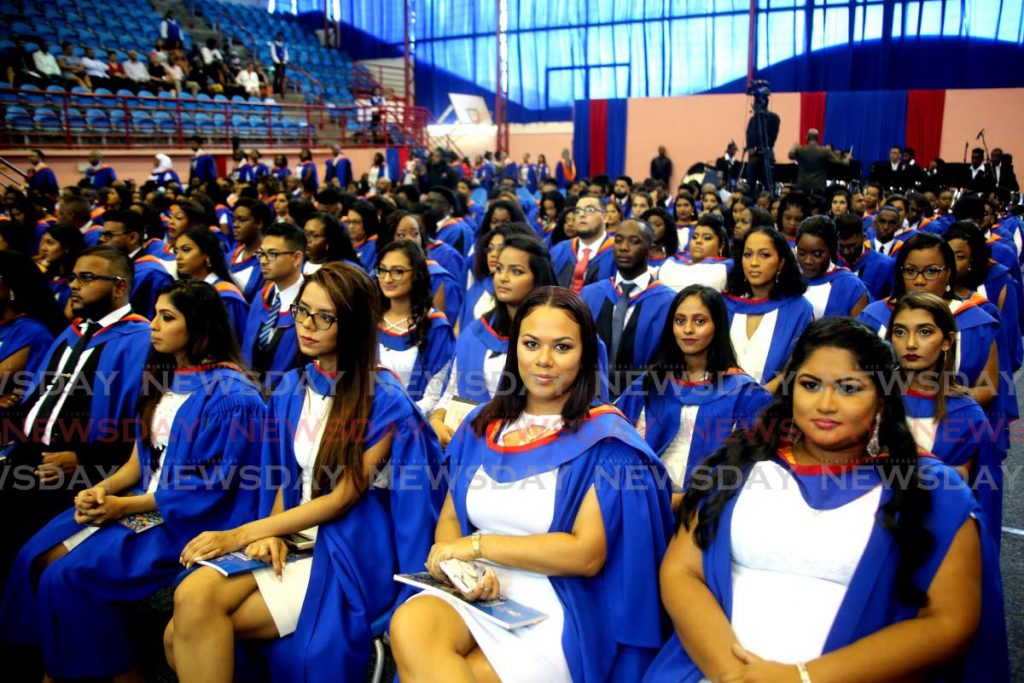[ad_1]
Kiran Mathur Mohammed

Universities should transfer lessons on-line and make data accessible to the tens of 1000’s of newly unemployed – who should quickly re-skill if they’re to seek out jobs.
Even earlier than covid19 catapulted us into the long run, automation and productiveness monitoring was already forcing universities to rethink their fashions. Regardless of dramatic technological change, universities at present look little completely different from these 1,000 or 2,000 years in the past.
Our taxes closely subsidise greater schooling, even earlier than we empty our pockets for tuition. In return, we count on universities to conduct analysis, invent and innovate. They need to educate essential pondering, socialise college students of their adolescence, prepare them to do work, present them with credentials and assist graduates discover jobs.
However are they doing so? The reality is that whereas a superb many individuals have benefited from greater schooling, its full potential stays untapped.
Universities stay unaffordable for many, even with a pricey authorities subsidy. The restricted variety of college areas implies that a big chunk of society stays shut out – whereas employers nonetheless display candidates for college levels to sign competence.
Only a few of our graduates are matched with fulfilling jobs – and people who are enter the working world with little preparation. As educator Sir Ken Robinson has proven, the standard mannequin of schooling was born from an industrial period system: studying occurs in a classroom and work occurs in a manufacturing facility.
Little surprise that current analysis by Ricardo Hausman of Harvard and others has proven that schooling – as outlined as years of education – doesn’t result in sooner financial development. The nice majority of studying occurs on the job and never in school rooms.
The normal mannequin isn’t arrange for the re-skilling or continuous lifetime studying wanted to adapt to rising automation.
But greater schooling, removed from being doomed, is poised to be extra related than ever. If, that’s, it strikes massively on-line.
The previous lecture mannequin works for neither professors nor college students. Workers and college students eat massive quantities of time going to and from lessons. A 100-person lecture presents nothing of the huge attain of on-line movies and scant alternative for private interactions.
By making their merchandise out there on-line at a less expensive price, greater schooling establishments will enhance income whereas reaching way more individuals. There shall be additional cash out there than ever earlier than for analysis.
After all, recording lectures isn’t sufficient. As George Mason economist Alexander Tabarrok has identified, it’s the distinction between a recorded play and a movie. By making wealthy, interactive content material out there on-line, lecturers could be more practical and attain higher audiences, liberating time that can be utilized for small group tutoring or analysis.
High quality won’t endure. Fairly the other: as a substitute of being drained and overworked, lecturers can current their greatest selves in recorded on-line movies. College students could have extra significant face time with their professors and one another. As it’s, Caribbean college students spend an excessive amount of time in school rooms as a substitute of partaking within the formative college social experiences that present a lot of the true worth of college. The college “expertise” won’t endure.
The time saved from drained lectures can be utilized to satisfy new individuals and have spirited conversations with friends or stimulating classes with professors.
And whereas some may argue that the self-discipline of going to lessons alerts self-discipline to employers, the truth is that on-line schooling requires extra self-motivation and self-discipline than in-person lectures.
The way forward for studying will contain individuals dipping out and in of schooling for shorter intervals of time. On-line schooling offers for broader schooling, with college students higher capable of “combine and match” course materials to profit from the kind of interdisciplinary studying that’s essential to adapt to technological change.
Universities should provide higher choices, “unbundling” their product to dramatically scale back costs and seize a bigger market. These in a position and prepared to pay for the social expertise will nonetheless have the ability to take action, whereas a far higher variety of working individuals and older college students would lastly achieve entry to employer-recognised schooling.
Swathes of society should now embark on a fantastic re-skilling. It is a matter of survival for the 80,000 newly unemployed as a lot as it’s for the upper schooling establishments that can face an enormous money crunch throughout covid19.
The federal government should demand extra accessibility from establishments receiving public funds. Initiatives like UWI’s Open Campus have to be modified and quickly scaled up. We should act now. Because the protests raging all over the world have reminded us, it is a matter of justice as a lot as it’s of development.
Kiran Mathur Mohammed is a social entrepreneur, economist and businessman. He’s a former banker, and a graduate of the College of Edinburgh.
[ad_2]
